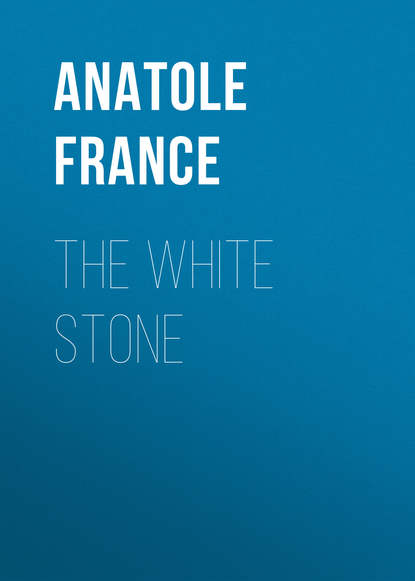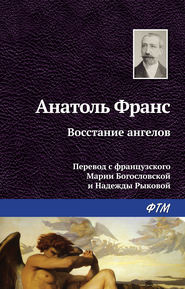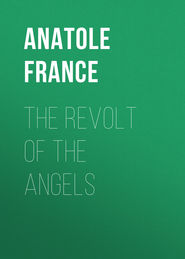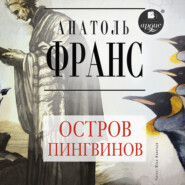По всем вопросам обращайтесь на: info@litportal.ru
(©) 2003-2024.
✖
The White Stone
Настройки чтения
Размер шрифта
Высота строк
Поля
After a moment’s silence, Nicole Langelier remarked:
“It is as difficult to distinguish amid a people the races composing it as to trace in the course of a river the streams which mingle with it. What constitutes, moreover, a race? Do any human races really exist? I see white men, red men, and black men. But, they do not constitute races; they are merely varieties of the same race, of the same species, which form together fruitful unions and intermingle without ceasing. A fortiori, the man of learning knows not several yellow races or several white races. Human beings invent, however, races in pursuance of their vanity, their hatred, or their greed. In 1871, France became dismembered by virtue of the rights of the Germanic race, and yet no German race has an existence. The antiemites kindle the hatred of Christian peoples against the Jews, and still there is no Jewish race.
“What I state on the subject, Boni, is purely speculative, and not with the view of running counter to your ideas. How could one not believe you! Conviction has its home on your lips. Moreover, you blend in your thoughts the profound verities of poetry with the far-spreading truths of science. As you truly state, the shepherds who came from Bactriana peopled Greece and Italy. As you again say, they found there natives of the soil. In ancient days, a belief shared in common by Italians and Hellenes was that the first men who peopled their country were like Erectheus, born of Mother Earth. Nor do I pretend, my dear Boni, that you cannot trace through the centuries the antochthones of your Ausonia, and the immigrants from the Pamir; the former, intelligent and eloquent plebeians; the latter, patricians fully impregnated with courage and faith. For, when all is said, if there are not, properly speaking, several human races, and if still less so several white races, our species assuredly comprises distinct varieties oftentimes stamped with marked characteristics. Hence there is nothing to hinder two or more of these varieties living for a long time side by side without fusing, each one preserving its individual characteristics. Nay, these differences may occasionally, in lieu of vanishing with the course of time under the action of the plastic forces of nature, on the contrary become accentuated more strongly through the empire of immutable customs, and the stress of social institutions.”
“E proprio vero,” said Boni in a low tone, as he replaced the oaken lid on the coffin of the Romulean child.
Then, begging his guests to be seated, he said to Nicole Langelier:
“I shall now hold you to your promise, and beg you to read to us that story of Gallio, at which I have seen you at work in your little room in the Foro Traiano. You make Romans speak in your script. This is the spot to hear your narrative, here in a corner of the Forum, close by the Via Sacra, between the Capitol and the Palatine. Tarry not with your reading, so as not to be overtaken by the twilight, and lest your voice be quickly drowned by the cries of the birds warning one another of approaching night.”
The guests of Giacomo Boni welcomed the foregoing utterance with a murmur of approval, and Nicole Langelier, without waiting for more pressing entreaties, unrolled a manuscript and read aloud the following narrative.
II
GALLIO
In the 804th year of the foundation of Rome, and the 13th of the principality of Claudius Cæsar, Junius Annæus Novatus was proconsul of Achaia. Born of a knightly family of Spanish origin, a son of Seneca the Rhetor and of the chaste Helvia, a brother of Annæus Mela, and of the famed Lucius Annæus, he bore the name of his adoptive father, the Rhetor Gallio, exiled by Tiberius. In his mother’s veins flowed the same blood as that of Cicero, and he had inherited from his father, together with immense wealth, a love of letters and of philosophy. He studied the works of the Greeks even more assiduously than those of the Latins. His mind was a prey to noble aspiration. He was an interested student of nature and of what appertains to her. The activity of his intelligence was so keen that he enjoyed being read to while in his bath, and that, even when joining in the chase, he was wont to carry with him his tablets of wax and his stylus. During the leisure moments which he managed to secure in the intervals of most serious duties and most important works, he wrote books on subjects relating to nature, and composed tragedies.
His clients and his freedmen loudly proclaimed his gentleness. His was indeed a genial character. He had never been known to give way to a fit of anger. He looked upon violence as the worst and most unpardonable of weaknesses.
All deeds of cruelty were held in execration by him, save when their true character escaped him owing to the consecration of custom and of public opinion. He frequently discovered, amid the severities rendered sacred by ancestral usage and sanctified by the laws, revolting excesses against which he raised his voice in protest, and which he would have attempted to sweep away, had not the interests of the State and the common welfare been objected from all quarters. In those days, conscientious magistrates and honest functionaries were not few and far between throughout the Empire. There were indeed a number as honest and as impartial as Gallio himself, but it is to be doubted whether another could be found so humane.
Entrusted with the administration of that Greece despoiled of her riches, her pristine glory departed, and fallen from her freedom so full of life into an idle tranquillity, he remembered that she had formerly taught the world wisdom and the fine arts, and his treatment of her combined the vigilance of a guardian with the reverence of a son. He respected the liberties of the cities and the rights of individuals. He showed honour to those who were truly Greeks by birth and education, regretting that their numbers were sorely restricted, and that his authority extended for the greater part over an infamous rabble of Jews and Syrians; yet he remained equitable in dealing with these Asiatics, laying unction to his soul for what he considered a meritorious endeavour.
He dwelt in Corinth, the richest and most densely populated city of Roman Greece. His villa, built in the time of Augustus, enlarged and embellished since then by the pro-consuls who had governed the province in succession, stood on the furthermost western slopes of the Acrocorinthus, whose foliaged summit was crowned by the Temple of Venus and the groves where dwelt her priests. It was a somewhat spacious mansion surrounded by gardens studded with bushy trees, watered by springs, ornamented with statues, alcoves, gymnasia, baths, libraries, and altars consecrated to the gods.
He was strolling in it on a certain morn, according to his wont, with his brother Annæus Mela, discoursing on the order of nature and the vicissitudes of fortune. The sun was rising, hazy in its white splendour in the roseate heavens. The gentle undulations of the hills of the Isthmus concealed the Saronic shore, the Stadium, the sanctuary of the sports, and the eastern harbour of Cenchreæ. Between the fallow slopes of the Geranean range and the crimson twin-peaked Helicon, one could, however, obtain a glimpse of the quiescent blue waters of the Alcyonium Mare. In the distance, and to the north, glistened the three snow-capped summits of Parnassus. Gallio and Mela proceeded together as far as the edge of the elevated foreground. At their feet spread Corinth standing on an extensive plateau of pale yellow sand, and sloping gently towards the spumous fringe of the Gulf. The pavements of the forum, the columns of the basilica, the tiers of the hippodrome, the white steps of the porches sparkled, while the gilded roofs of the temples flashed dazzling rays. Vast and new, the town was intersected with straight-running streets. A wide road descended to the harbour of Lechæum, whose shore was fringed with warehouses and whose waters were covered with ships. To the west, the atmosphere reeked with the smoke of the iron-foundries, while the streams ran black from the pollution of the dye-houses, and on that side, forests of pine extending to the edge of the horizon, were lost to sight in the skies.
Gradually, the town awoke from its slumbers. The strident neighing of a horse rent the morning calm, and soon were heard the muffled rumblings of wheels, shouting of waggoners, and the chanting voices of women selling herbs. Emerging from their hovels amid the ruins of the Palace of Sisyphus, aged and blind hags bearing copper vessels on their heads, and led by children, wended their way to draw water from the Pirene fountain. On the flat roofs of the houses abutting the grounds of the proconsul, Corinthian women were spreading linen to dry, and one of them was castigating her child with leek-stalks. In the hollow road leading to the Acropolis, a semi-nude old bronze-coloured man, prodded the rump of an ass laden with salad herbs and chanted between the stumps of his teeth and in his unkempt beard, a slave-song:
“Toil, little ass,
As I have toiled.
Much good will it do you:
You may be sure of it.”
Meanwhile, at the sight of the town resuming its daily labour, Gallio fell a-musing over the earlier Corinth, the lovely Ionian city, opulent and joyous until the day when she witnessed the massacre of her citizens by the soldiery of Mummius, her women, the noble daughters of Sisyphus, sold at auction, her palaces and temples the prey of flames, her walls razed to the ground, and her riches piled away into the Liburnian ships of the Consul.
“Hardly a century ago,” he remarked, “the work wrought by Mummius still stood revealed in all its horror. The shore which you see, brother mine, was more of a desert than the Libyan sands. The divine Julius rebuilt the town wrecked by our arms, and peopled it with freedmen. On this very strand, where the illustrious Bacchiadæ formerly revelled in their haughty indolence, poor and rude Latins settled, and Corinth entered upon a new lease of life. She grew rapidly, and realised how to take advantage of her position. She levies tribute on all ships which, whether from the East or from the West, cast anchor in her two harbours of Lechæum and Cenchreæ. Her population and wealth increase apace under the ægis of the Roman peace.
“What blessings has not the Empire bestowed throughout the world! To the Empire is due the profound tranquillity which the countryside enjoys. The seas are swept of pirates, and the highways of robbers. From the befogged Ocean to the Permulic Gulf, from Gades to the Euphrates, the trading of merchandise proceeds in undisturbed security. The law protects the lives and property of all. Individual rights must not be infringed upon. Liberty has henceforth no other limits than its lines of defence, and is circumscribed for its own security alone. Justice and reason rule the world.”
Unlike his two brothers, Annæus Mela had not intrigued for honours. Those who loved him, and their name was legion, for he was ever in his intercourse affable and extremely pleasant, attributed his detachment from public affairs to the moderation of a mind attracted by the blessings of tranquil obscurity, a mind which had no other care than the study of philosophy. But those who observed him with greater insight were under the impression that he was ambitious after his own fashion, and that like Mæcenas, he, a simple knight, was consumed with the envy of enjoying the same consideration as the consuls. Lastly, certain evil-minded individuals believed that they discerned in him the greed of the Senecas for the riches which they affected to despise, and thus did they explain to themselves that Mela had for a long time lived in obscurity in Betica, giving himself up entirely to the management of his vast estates, and that subsequently summoned to Rome by his brother the philosopher, he had devoted himself to the administration of the finances of the Empire, rather than go in the quest of high judiciary or military posts. His character could not be readily determined from his utterances, for he spoke the language of the Stoics, a language equally adapted for the concealment of the weaknesses of the mind and the revelation of the grandeur of one’s sentiments. It was in those days the height of elegance to utter virtuous discourse. At any rate, there is no doubt that Mela spoke his thoughts.
He replied to his brother that, although not versed in public affairs like himself, he had had occasion to admire the power and wisdom of the Romans.
“They reveal themselves,” he said, “in the most remote parts of our own Spain. But it is in a wild pass of the mountains of Thessaly that I have been made to appreciate at its highest the beneficent majesty of the Empire. I had come from Hypata, a town renowned for its cheeses, and whose women were notorious for witchcraft, and I had been riding for some hours along mountain paths, without coming across a human face. Overcome by the heat and fatigue, I tethered my horse to a tree by the road, and lay down under an arbutus-bush. I had been resting there a short while only, when there came along a lean old man bowed down under a load of branches. Utterly exhausted, he tottered in his steps, and just as he was about to fall, exclaimed: ‘Cæsar.’ On hearing such an invocation escape the lips of a poor woodcutter in this stony solitude, my heart overflowed with veneration for the tutelary City, which inspires, even unto the farthermost lands, the most rustic of minds with so great a conception of its sovereign providence. But sadness and a feeling of distress mingled with my admiration, brother mine, when I reflected upon the injury and insults to which the inheritance of Augustus and the fortune of Rome were exposed through men’s folly and the vices of the century.”
“I have witnessed on the spot, brother mine,” replied Gallio, “the crimes and follies which sadden your mind. My cheek has blanched under the gaze of the victims of Caius from my seat in the Senate. I have held my peace, as I did not despair of better days. I am of the opinion that good citizens should serve the Republic under bad princes rather than shirk their duty in a useless death.”
As Gallio was uttering these sentiments, two men, still in their youth and wearing the toga, came up to him. The one was Lucius Cassius, of a Roman family, plebeian but ancient, and having attained distinction. The other, Marcus Lollius, son and grandson of consuls, and moreover of a knightly family, which had sprung from the free town of Terracina. Both had frequented the schools of Athens, and acquired a knowledge of the laws of nature of which those Romans who had not been in Greece were totally ignorant.
At the present moment, they were studying in Corinth the management of public affairs, and the proconsul surrounded himself with them as an ornamental adjunct to his magistracy. Somewhat behind them, the Greek Apollodorus, wearing the short cape of the philosophers, bald of head, and with Socratic beard, sauntered along, with uplifted arm and gesticulating fingers, discussing with himself.
Gallio welcomed all three of them in kindly fashion.
“The rose of dawn is already fading,” he said, “and the sun is beginning to shed its steeled darts. Come along, my good friends, to the coolness of the shady foliage beyond.”
Saying this, he led them along the banks of a stream whose babbling murmur invited peaceful reflections, until they had reached an enclosure of verdant bushes in the midst of which lay in a hollow an alabaster basin filled with limpid waters on whose surface floated the feather of a dove, which had just bathed in them, and which was now cooing plaintively from a branch. They took their seats on a semicircular marble bench supported by griffins. Laurel and myrtle bushes blended their shadows about it. Statues encircled the enclosure. A wounded Amazon gracefully coiled her arm about her head. Grief appeared a thing of beauty on her lovely face. A shaggy Satyr was playing with a goat. A Venus, emerging from the bath, was drying her wetted limbs along which a shudder of pleasurable emotion seemed to run. Near by, a youthful Faun was smilingly placing a flute to his lips. His face was partly concealed by the branches, but his shining belly glistened amid the leafage.
“That Faun seems animated,” remarked Marcus Lollius. “One could imagine that a gentle breathing was causing his bosom to heave.”
“He is true to life, Marcus,” said Gallio. “One expects to hear rustic melodies flow from his flute. A Greek slave carved him out of the marble, in imitation of an ancient model. The Greeks formerly excelled in the making of these fanciful statues. Several of their efforts in this style are justly renowned. There is no gainsaying it: they have found the means of giving august traits to the gods and of expressing in both marble and bronze the majesty of the masters of the world. Who but admires the Olympian Zeus? And yet, who would care to be Phidias!”
“No Roman would assuredly care to be Phidias,” exclaimed Lollius, who was spending the fortune he had inherited from his ancestry in ornamenting his villa at Pausilypum with the masterpieces of Phidias and Myron brought over from Greece and Asia.
Lucius Cassius was of the same opinion. He argued with some warmth that the hands of a free man were not made to wield the sculptor’s chisel or the painter’s brush, and that no Roman citizen would condescend to the degrading work of casting bronze, hewing marble into shape, and painting forms on a wall.
He professed admiration for the manners of the ancient times, and vaunted at every opportunity the ancestral virtues.
“Men of the stamp of Curius and Fabricius cultivated their lettuce-beds, and slept under thatched roofs,” he said. “They wot of no other statue than the Priapus carved in the heart of a box-tree, who, protruding his vigorous pale in the centre of their garden, threatened pilferers with a terrible and shameful punishment.”
Mela, who was well versed in the annals of Rome, opposed to this opinion the example of an old patrician.
“In the days of the Republic,” he pointed out, “that illustrious man, Caius Fabius, of a family issued from Hercules and Evander, limned with his own hand on the walls of the Temple of Salus paintings so highly prized that their recent loss, on the destruction of the temple by fire, has been considered a public misfortune. It is moreover related that he did not doff his toga when painting, thus to indicate that such work was not unworthy of a Roman citizen. He was given the surname of Pictor, which his descendants were proud to bear.”
Lucius Cassius replied with vivacity:
“When painting victories in a temple, Caius Fabius had in mind those victories, and not the painting of them. No painters existed in Rome in those days. Anxious that the doughty deeds of his ancestors should for ever be present to the gaze of the Romans, he set an example to the artisans. But just as a pontiff or an ædile lays the first stone of an edifice, without exercising for that the trade of a mason or of an architect, Caius Fabius executed the first painting Rome boasted of, without it being permissible to number him with the workmen who earn their livelihood by painting on walls.”
Apollodorus signified approval of this speech with a nod, and, stroking his philosophic beard, remarked:
“The sons of Ascanius are born to rule the world. Any other care would be unworthy of them.”
Then, speaking at some length and in well-rounded sentences, he sang the praises of the Romans. He flattered them because he feared them. But in his innermost being, he felt nothing but contempt for their shallow intelligences so devoid of finesse. He beslavered Gallio with praise in these words:
“Thou hast ornamented this city with magnificent monuments. Thou hast assured the liberty of its Senate and of its people. Thou hast decreed excellent regulations for trade and navigation, and thou dispensest justice with even tempered equity. Thy statue shall stand in the Forum. The title shall be granted to you of the second founder of Corinth, or rather Corinth shall take from you the name of Annæa. All these things are worthy of a Roman, and worthy of Gallio. But, do not think that the Greeks have an exaggerated affection for the manual arts. If many of them are engaged in painting vases, in dyeing stuffs, and in modelling figures, it is through necessity. Ulysses constructed his bed and his ship with his own hands. At the same time, the Greeks proclaim that it is unworthy of a wise man to give himself up to futile and gross arts. In his youth, Socrates followed the trade of a sculptor, and modelled an image of the Charites still to be seen on the Acropolis of Athens. His skill was certainly not of a mediocre order, and, had he so wished, he could, like the most renowned artists, have portrayed an athlete throwing a discus or bandaging his head. But he abandoned like works to devote himself to the quest of wisdom, as commanded by the oracle. Henceforth, he attached himself to young men, not for the purpose of measuring the proportions of their bodies but solely to teach them that which is honest. He preferred those whose soul was beautiful to those of perfect form, differing in this respect from sculptors, painters and debauchees, who consider only external beauty, despising the inner comeliness. You are aware that Phidias engraved on the great toe of his Jupiter the name of an athlete, because he was handsome, and without considering whether he was pure.”
“Hence it is,” was Gallio’s summing up, “that we do not sing the praises of sculptors, while bestowing them on their works.”
“By Hercules!” exclaimed Lollius, “I do not know whether to admire most that Venus or that Faun. The goddess seems to reflect coolness from the water still dripping from her. She is truly the desire of gods and men; do you not fear, Gallio, that some night, a lout concealed in your grounds may subject her to an outrage similar to the one inflicted by a profane youth, so it is reported, on the Aphrodite of the Cnidians? The priestesses of her temple discovered one morning traces of the outrage on the body of the goddess, and travellers affirm that from that day until now she bears the indelible mark of her defilement. The audacity of the man and the patience of the Immortal One are to be wondered at.”
“The crime did not remain unpunished,” affirmed Gallio. “The sacrilegious profaner flung himself into the sea, and fell on the rocks a shapeless mass. He was never again seen.”
“There can be no doubt,” resumed Lollius, “that the Venus of Cnidus surpasses all others in beauty. But the artisan who carved the one in your grounds, Gallio, knew how to make marble plastic. Look at that Faun; he is laughing, and saliva moistens his teeth and his lips; his cheeks have the fresh bloom of the apple: his whole body glistens with youth. However, I prefer the Venus to the Faun.”
Raising his right arm, Apollodorus said:

















